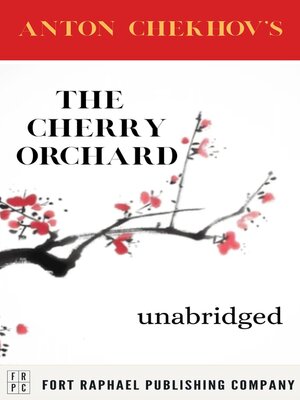
Sign up to save your library
With an OverDrive account, you can save your favorite libraries for at-a-glance information about availability. Find out more about OverDrive accounts.
Find this title in Libby, the library reading app by OverDrive.



Search for a digital library with this title
Title found at these libraries:
| Library Name | Distance |
|---|---|
| Loading... |
"The Cherry Orchard" is one of Russian writer Anton Chekhov's most celebrated plays and is considered by literary critics as one of the finest theatrical works ever written.
Produced by the famed Russian director Konstantin Stanislavski at the Moscow Arts Theatre in 1904, "The Cherry Orchard" would prove to be Chekhov's last play, as he succumbed to tuberculosis later that same year.
Billed as a comedy, the play revolves around dark themes: the decline of the Russian aristocracy, the new materialism of the former serfs and the power shift that resulted from the rise of a newly created Russian middle class.
At the outset of the play, Madame Ranyevskaya is returning to her family's estate to oversee the auction of the land (and the eponymous cherry orchard contained thereon) to help pay off the family's debts. She is reluctant to redevelop the land in order to save the estate, as that would involve destroying a portion of the orchard, but struggles with the fact that there is no guarantee that the new owner will fulfill her wishes and preserve the land as it is.
Hailed as one of the greatest works of the period when it first premiered, "The Cherry Orchard" is numbered among Chekhov's four outstanding works for the theatre, which also includes "The Sea Gull," "The Three Sisters" and "Uncle Vanya."







